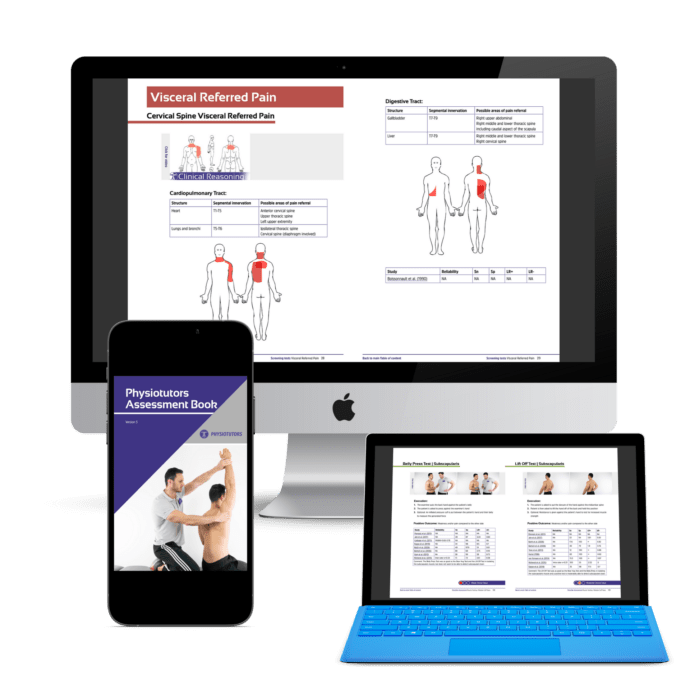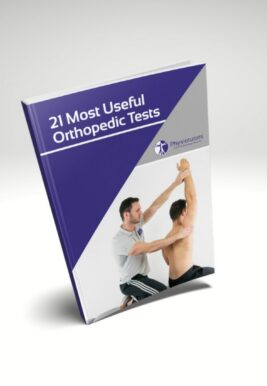



While small (partial) RC tears can be addressed like RCRSP, large full-thickness tears deserve a separate discussion. First, it is important to mention that a large portion of RC tears exist without symptoms. Moreover, RC degeneration in the general population increases quickly from the age of 50, peaking at 80, whereas non-traumatic shoulder pain decreases at the age of 60. Rotator cuff tears (both symptomatic and asymptomatic) are very common, affecting about 40% of the population who are >60 years of age. In addition to pain over the deltoid region, patients will usually also report loss of muscle strength combined with a reduction in range of motion.
Micherolli et al. (2015) investigated the diagnostic accuracy of several shoulder tests in their paper from 2015 on the correlation of findings in clinical and high-resolution ultrasound examination findings.
In their study, the infraspinatus test yielded a sensitivity of 90% and specificity of 74%. These results are similar to findings in other studies that used MRI as a reference standard which is why we give the test a moderate clinical value in the diagnosis of infraspinatus tears but it may be better suited to rule them out in case of a negative test.
To conduct the test the patient is in sitting or standing position so that the arms can hang relaxed along the trunk but not quite touching it. Then both elbows are flexed to 90° and the examiner places the palms on the dorsum of the patient’s hands.
The patient is asked to externally rotate both shoulders against the examiner’s resistance.
As infraspinatus tears are usually painless, weakness in external rotation would raise suspicion that there might be a tear in this muscle and indicates a positive test.

Other orthopedic tests to assess for full-thickness tears of the rotator cuff muscles of the shoulder are:







Download our free physiotherapy app with all the knowledge you need.